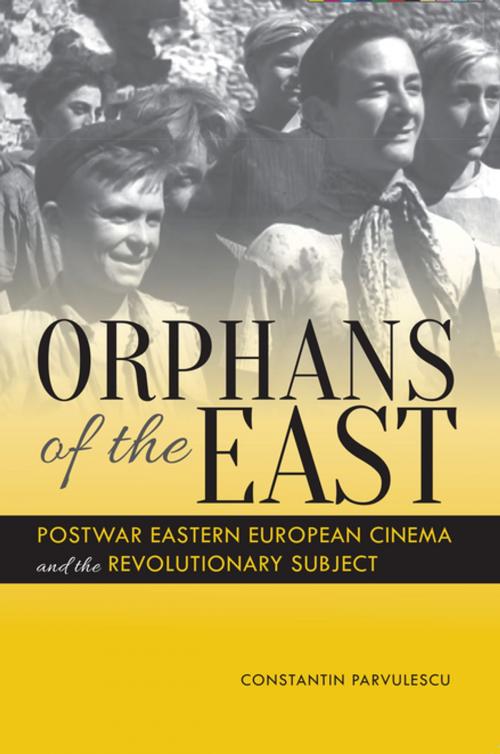Orphans of the East
Postwar Eastern European Cinema and the Revolutionary Subject
Nonfiction, History, Asian, Former Soviet Republics, Entertainment, Film, History & Criticism, Performing Arts| Author: | Constantin Parvulescu | ISBN: | 9780253017659 |
| Publisher: | Indiana University Press | Publication: | June 8, 2015 |
| Imprint: | Indiana University Press | Language: | English |
| Author: | Constantin Parvulescu |
| ISBN: | 9780253017659 |
| Publisher: | Indiana University Press |
| Publication: | June 8, 2015 |
| Imprint: | Indiana University Press |
| Language: | English |
Unlike the benevolent orphan found in Charlie Chaplin's The Kid or the sentimentalized figure of Little Orphan Annie, the orphan in postwar Eastern European cinema takes on a more politically fraught role, embodying the tensions of individuals struggling to recover from war and grappling with an unknown future under Soviet rule. By exploring films produced in postwar Hungary, the German Democratic Republic, Czechoslovakia, Romania, and Poland, Parvulescu traces the way in which cinema envisioned and debated the condition of the post-World War II subject and the "new man" of Soviet-style communism. In these films, the orphan becomes a cinematic trope that interrogates socialist visions of ideological institutionalization and re-education and stands as a silent critic of the system’s shortcomings or as a resilient spirit who has resisted capture by the political apparatus of the new state.
Unlike the benevolent orphan found in Charlie Chaplin's The Kid or the sentimentalized figure of Little Orphan Annie, the orphan in postwar Eastern European cinema takes on a more politically fraught role, embodying the tensions of individuals struggling to recover from war and grappling with an unknown future under Soviet rule. By exploring films produced in postwar Hungary, the German Democratic Republic, Czechoslovakia, Romania, and Poland, Parvulescu traces the way in which cinema envisioned and debated the condition of the post-World War II subject and the "new man" of Soviet-style communism. In these films, the orphan becomes a cinematic trope that interrogates socialist visions of ideological institutionalization and re-education and stands as a silent critic of the system’s shortcomings or as a resilient spirit who has resisted capture by the political apparatus of the new state.















